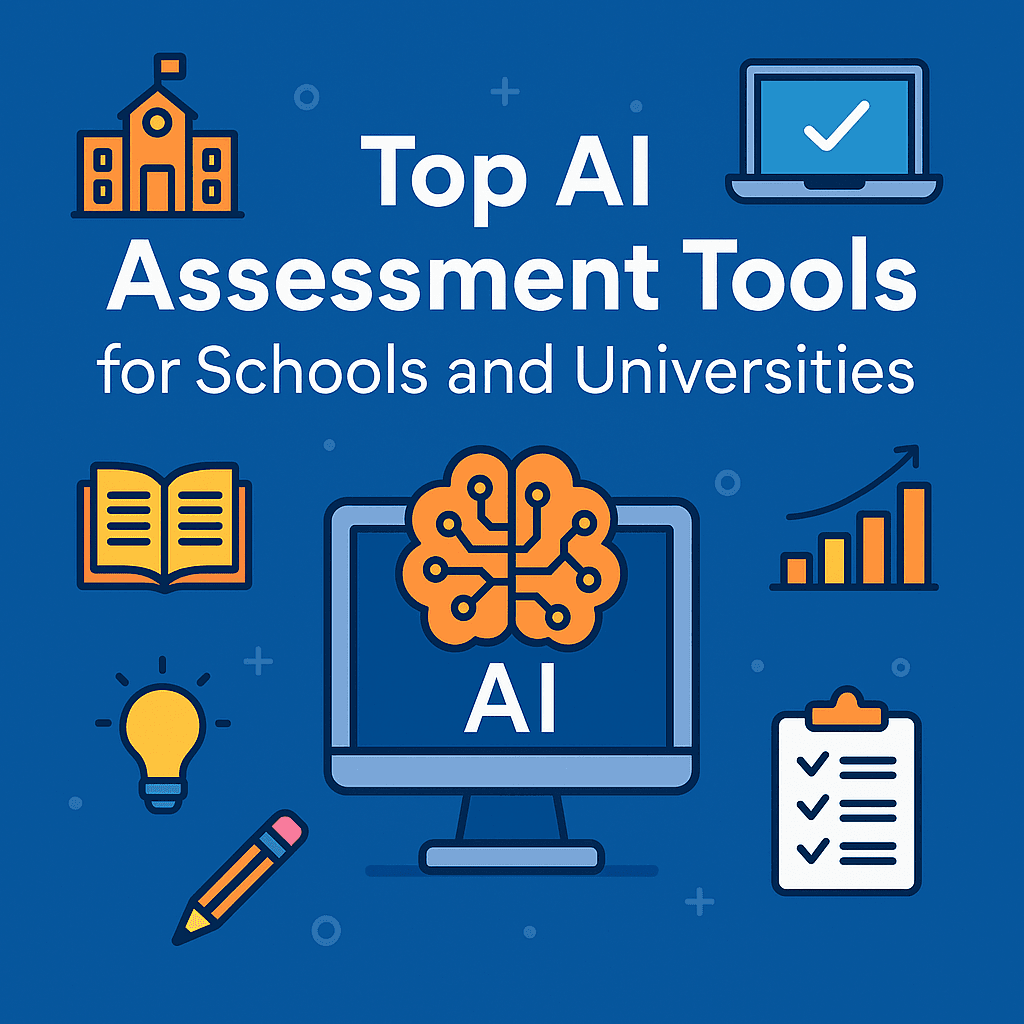
AI assessment tools for schools and universities are revolutionising how educators evaluate student performance, provide feedback, and design data-driven learning strategies. As educational institutions worldwide embrace digital transformation, the integration of artificial intelligence into assessment processes has become not only desirable but essential for efficiency, accuracy, and scalability.
Traditional methods of assessment—while foundational—are often limited by time constraints, subjective marking, and lack of real-time feedback. By contrast, AI assessment tools for schools and universities offer powerful capabilities such as instant grading, adaptive questioning, and predictive analytics, enabling educators to focus more on teaching and student support.
Why AI Assessment Tools Are Gaining Ground
The push toward personalised learning, combined with the administrative burden on educators, has made AI tools a game-changer in education. From formative quizzes and essays to large-scale online exams, AI can automate grading, track learning patterns, and suggest tailored interventions—helping both teachers and students achieve better outcomes.
Top AI Assessment Tools for Schools and Universities (2025)
1. Gradescope (by Turnitin)
Gradescope is one of the most widely adopted AI assessment tools for schools and universities. It uses machine learning to group similar answers, enabling batch grading and consistent feedback. Especially useful for STEM subjects and handwritten responses, it significantly reduces marking time and provides rubric-based grading support.
Key Features:
- AI-assisted grouping and grading
- Rubric alignment
- Integration with LMS platforms
- Ideal for mathematics, engineering, and computer science courses
2. Knewton Alta
Knewton Alta is an adaptive learning and assessment platform that uses AI to personalise learning content based on student progress. While originally developed for college-level maths, it now supports multiple subjects.
Key Features:
- Adaptive content delivery
- Real-time feedback for students
- Continuous formative assessment
- Integration with Canvas, Blackboard, and Moodle
3. Socrative
Socrative is a student response and assessment system ideal for formative assessment in classrooms. Teachers can create quick quizzes and receive real-time results through visual dashboards.
Key Features:
- Immediate feedback
- Gamified assessments (e.g. “Space Race” mode)
- Real-time student data
- Easy setup for mobile and web use
4. Century Tech
A favourite among UK secondary schools, Century Tech uses AI to identify learning gaps and recommend targeted micro-lessons. It blends diagnostics, assessment, and personalised pathways using intelligent algorithms.
Key Features:
- AI-powered student diagnostics
- Continuous assessment with progress tracking
- Teacher dashboards for class insights
- Ideal for KS3 and GCSE preparation
5. Cognii
Cognii offers a virtual learning assistant with AI-powered open-response assessments. Students receive instant feedback on written answers, improving critical thinking and writing skills.
Key Features:
- Natural Language Processing (NLP) for essay-style answers
- Customisable to curriculum
- Personalised feedback
- High compatibility with online learning platforms
6. Querium
Querium is an AI-driven assessment platform focused on STEM skills. It uses step-by-step problem-solving feedback and is widely used in higher education.
Key Features:
- AI tutors for STEM
- Step-by-step problem solving
- Predictive analytics for intervention
- Cloud-based for easy integration
7. Edulastic (now part of GoGuardian)
Edulastic provides AI-enhanced formative and summative assessments aligned to national standards. Teachers can access pre-made question banks or create custom tests.
Key Features:
- Real-time scoring
- Standards-aligned question bank
- Comprehensive reporting tools
- Suitable for K–12 schools
8. Magicschool AI
Designed specifically for educators, MagicSchool AI is an AI content creation and grading assistant. Teachers can automate test creation, rubric development, and assignment evaluation.
Key Features:
- AI rubric creation
- Test generator with differentiated questions
- Classroom assistant features
- Integrates with Google Classroom and other LMS
Benefits of Using AI Assessment Tools in Education
- Time Efficiency: Automates grading, reducing administrative workload
- Personalised Learning: Tailors feedback and learning paths for individual students
- Data-Driven Insights: Helps educators identify trends and gaps in performance
- Consistency: Removes subjectivity in grading across large cohorts
- Scalability: Suitable for small classrooms and large universities alike
Key Considerations Before Implementation
Before integrating AI assessment tools for schools and universities, institutions should:
- Ensure tools align with existing curricula and assessment policies
- Address data privacy, consent, and regulatory compliance (e.g. GDPR)
- Provide training for staff on using AI tools effectively
- Maintain human oversight to avoid over-reliance on automation
Conclusion
The future of assessment is intelligent, data-driven, and learner-centred. With the right combination of AI tools, training, and ethical frameworks, AI assessment tools for schools and universities can revolutionise how we measure and support student success. From instant feedback to adaptive learning environments, these tools are paving the way for more equitable and efficient education systems.
https://thecasehq.com/top-rated-ai-assessment-tools-for-schools-and-universities-in-2025/?fsp_sid=2042
Comments
Post a Comment